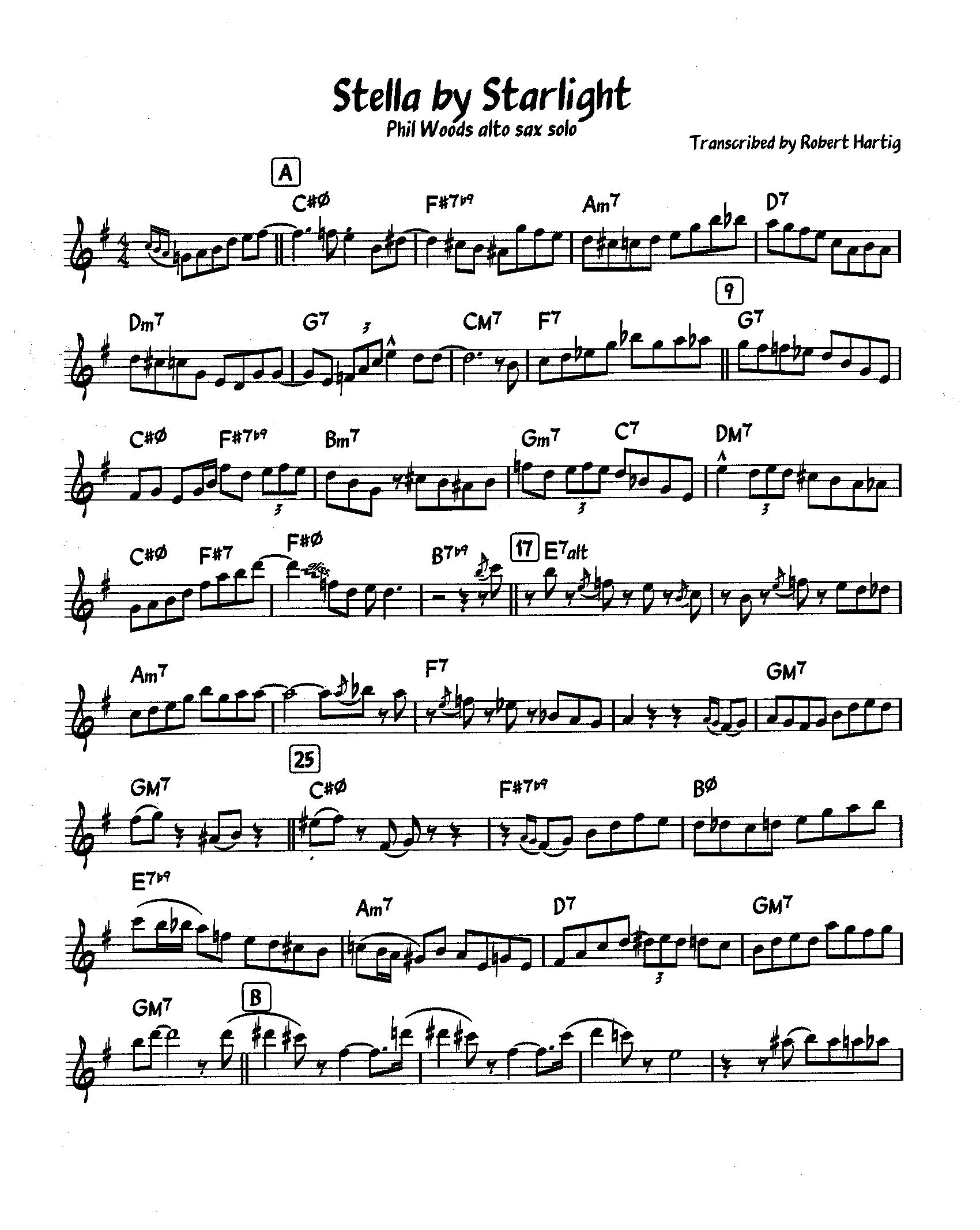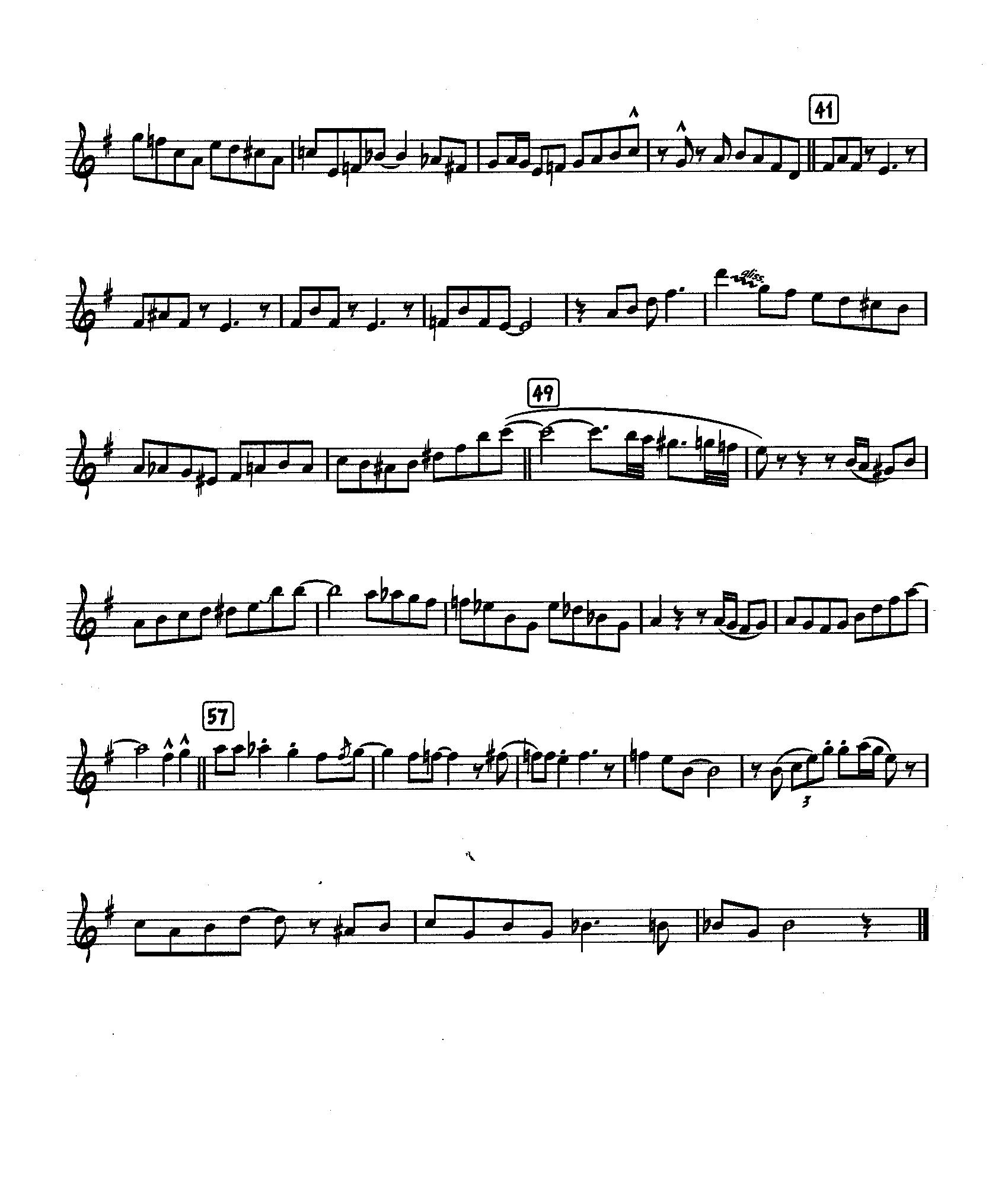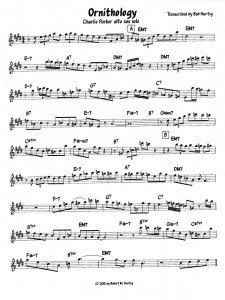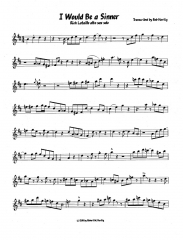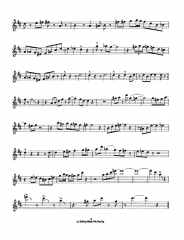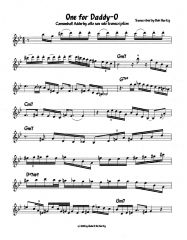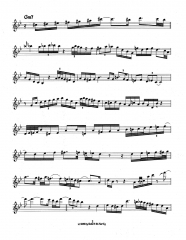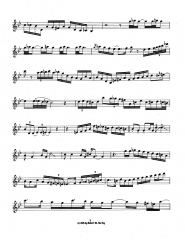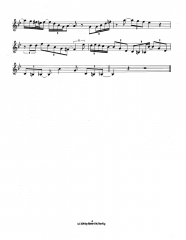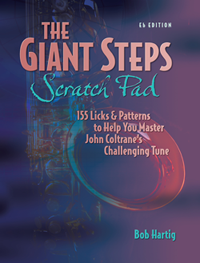Some years back, I offered a transcription of alto saxophonist Richie Cole soloing on the Charlie Parker original “Confirmation.” In this post I’m revisiting the tune, this time featuring Sonny Stitt holding forth on five moderately fast choruses on the 1966 Atlantic album Stitt Plays Bird.*
Stitt was compared to Parker early on, but he clearly had his own voice—perhaps not quite as sophisticated harmonically as Bird’s, but distinct, technically clean, and masterful. He was a redoubtable exponent of bebop, creative, deft, and downright fierce at even the fastest tempos but also accessible and certainly a great study. On slower tunes he seemed to instinctively carve out large passages of double-time, and even here at a more upbeat tempo, his love of sixteenth-note runs is on display, notably in a couple of the bridge sections (measures 49–51 and 145–148).
Some parts of this transcription are approximations rhythmically, and while I’ve incorporated a few slurs where I felt they’d be helpful, I haven’t attempted to duplicate Stitt’s articulation. So as always, get a true feel for the tune by listening to the recording, available, at least at the time of this post, on YouTube (see footnote).




__________
* Remastered edition of “Confirmation” published by Rhino Atlantic on YouTube, November 28, 2019, https://youtu.be/ZFQG2sMAAM4?list=OLAK5uy_lcjTYSk7YLONbfUqDgz3YQj300mB1wZs4.
